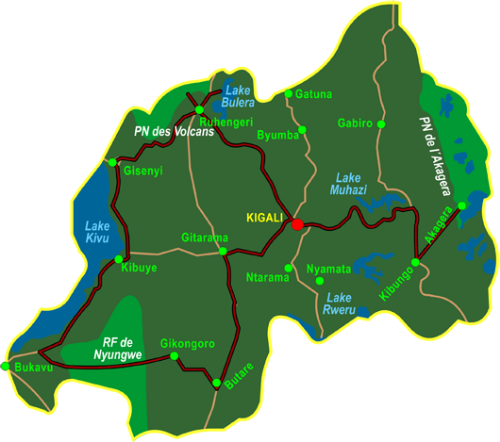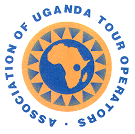Best of Rwanda (14 days)
Our 14-day trip brings you the best of Rwanda: where the savannah meets the rainforest.
Expect to see the animals of the savannahs (elephant, buffalo, giraffe, hippo, leopard) and up to 15 primate species, including gorillas and chimps!!!
This trip specifically includes the most important and well known national parks of Rwanda: Akagera National Park, Nyungwe Forest National Park, Volcanoes National Park and Lake Kivu.
Highlights
- Meet the gorillas in the Volcanoes National Park
- Visit Dian Fossey's Grave
- See chimpanzees and 12 other monkey species in Nyungwe Forest
- Game drives (safaris) in Akagera National Park
- Boat trips on Lake Akagera
- Visit the Genocide Memorial in Kigali and the National Museum in Butare (Huye)
- Meet the local people and/or the pygmies and see their local way of living
Video
Route
Day to day program
Kigali Airport - Kigali
Arrival at Kigali Airport. Your guide will be there waiting for you. Pick up and proceed to your accommodation.
Included: airport transfer
Kigali - Akagera National Park
After breakfast we drive to Akagera National Park. On our way we enjoy the beautiful landscape and rural way of life of the local people.
Akagera National Park
Game drive in the morning in Akagera National Park. Boat trip and game drive in the afternoon.
Akagera National Park was gazetted in 1934 and is Rwanda’s only Savannah national park. The scenery is beautiful and the park is a habitat to the big five . Expect to see elephants, buffaloes, giraffes, hippos and crocodiles. With a little luck lions and leopards are possible.
Included: game drive, boat trip
Akagera National Park - Kigali
Game drive in the morning. Picnic lunch at the top of Mount Mutumba (1.825m) with stunning panoramic views of the park. Transfer to Kigali afterwards.
Included: game drive, picnic lunch
Kigali - Butare - Nyungwe Forest National Park
Transfer to Butare (Huye) where it is possible to visit the National Museum and Nyanza Hill (optional activities). Afterwards transfer to Nyungwe Forest.
Nyungwe Forest National Park
Early morning Chimpanzee tracking in Nyungwe Forest. You can also go for a walk to the waterfall or visits to the Angolan Black Colobus monkeys (both activities optional).
Nyungwe Forest is East Africa’s largest forest, with 13 monkey species, including chimpanzees, Angolan Black Colobus, Mona Monkey and Owl Faced Monkeys.
Included: chimp tracking
Nyungwe Forest National Park
Go for a nature walk or bird watching along the forest edges, make the Irebero primate walk to spot a variety of birds and monkeys, make the canopy walk or do the Imbaraga waterfall trail to the 4 waterfalls with a great view (one activity included).
Included: 1 of the following activities: nature walk, bird watching, primate walk, canopy walk, waterfall trail
Nyungwe Forest National Park - Gisenyi (Lake Kivu)
Today we will drive to Gisenyi via Kibuya. On the way we will pass a huge tea plantation. The last part we will drive along the shores of Lake Kivu.
Gisenyi (Lake Kivu)
After breakfast we will have some time for relaxation, and go a boat trip in the afternoon. You can make an optional walk to the Congo border.
Included: boat trip
Gisenyi - Volcanoes National Park
Relax at the lodge in the morning, go for a nature walk along the shore or visit Bugarama hot springs. In the afternoon we drive to the Volcanoes National Park.
Volcanoes National Park is a unique jungle, with many monkey species, including the endemic Golden Monkeys. Volcanoes National Park is part of the Virunga Mountains, covering Uganda, Rwanda and Congo, and one of the two places in the world where you can find Mountain Gorillas!
Volcanoes National Park
Gorilla tracking!!! Early morning departure with your ranger to search for one of the world's most interesting and endangered animals, the Mountain Gorilla! You will spend one hour with one of our closest relatives. An experience you will never forget.
Nature walk through the beautiful environment in the afternoon (optional).
Volcanoes National Park
Optional activities for today (one activity included): make a nature walk in the national park, visit the golden monkeys, climb one of the volcanoes, or visit Diane Fossey’s grave.
It is also possible to make another gorilla tracking.
Included: 1 of the following activities: nature walk, golden monkey tracking, climb one of the volcanoes, visit Dian Fossey’s grave
Volcanoes National Park - Kigali
Today we will drive back to Kigali, but first we will visit Lake Ruhondo and Lake Burera. Those lakes are called: the twin lakes. We drive around the lakes and visit the Musangabo viewing point. Optional nature walk around the lakes. It is also possible to visit the local people or the pygmies (optional).
Included: visit the twin lakes, visit the Musangabo viewing point
Accommodations
Legend: BB = Bed and Breakfast / HB = Half Board / FB = Full Board / AI = All Inclusive
Prices
Price on request, please send an email to mail@kazingatours.com
Includes
- Airport transfers
- Accommodations with meals mentioned
- Bottled drinking water
- Private 4x4 custom built safari van with knowledgeable driver/guide and fuel
- Entrance fees to the included National Parks
- Activities mentioned as included
Excludes
- Flights
- Visa
- All optional activities
- Insurances
- Meals not mentioned and beverages
- Tips and personal expenses such as laundry and communication
Group Tours - Guaranteed Departures
Medium budget, with a minimum of 2 persons
2024
20-07-2024 – 02-08-2024
2025
02-02-2025 – 15-02-2025
20-07-2025 – 02-08-2025
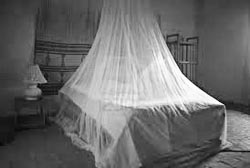 A certificate proving that you have received a yellow fever vaccination is obligatory. Furthermore all required inoculations must be recorded by your health practitioner on a valid vaccination certificate. You must carry this document with you throughout the tour. All visitors should take malaria prophylactic drugs. We also advise that you bring a mosquito repellent with you. Always consult your doctor or pharmacist for up to date requirements, inoculations and personal recommendations!
A certificate proving that you have received a yellow fever vaccination is obligatory. Furthermore all required inoculations must be recorded by your health practitioner on a valid vaccination certificate. You must carry this document with you throughout the tour. All visitors should take malaria prophylactic drugs. We also advise that you bring a mosquito repellent with you. Always consult your doctor or pharmacist for up to date requirements, inoculations and personal recommendations!
Normally you need the following vaccinations (but please always consult a doctor):
- Yellow Fever (you must have this can even be checked on arrival, especially when flying within East Africa)
- DTP
- Hepatitis
For Malaria you need to take tablets, Malarone or Lariam. Malarone is mostly used (please always consult a doctor).
Hygiene is not at the same standard as in your home country, so we advise you to bring a disinfectant cream with you. Always drink bottled water instead of tap water.
On arrival on the airport our guide will be there waiting for you. During safari we use custom made safari vehicles, custom made for an optimal view of the wildlife. Safari vehicles (and small aircrafts) provide limited space for luggage. It is therefore recommended to travel with light bags since bulky suitcases will overload and might be difficult to be taken on board.
The Rwandan authorities made their Visa one of the easiest to get.
- All Visitors Going to Rwanda can get Visa on arrival at the Immigration desk at $30
Some nationalities (like Americans and Germans) do not require a visa, please check this in advance.
It is your own responsibility to inform yourself about the visa procedures (as the information given above can change at any time) and to arrange your visa(s) correctly and timely, but if anything is unclear of course we will be glad to assist you.
Note: This information is subject to change! Always consult the Rwandan embassy in your country if you are not sure.
In most of the cities it is possible to withdraw money from an ATM. Travelers Cheques are not widely accepted and it is very difficult or impossible to pay by credit card outside the cities. The US dollar is traditionally the hard currency of preference. We advise to bring some Dollars for daily expenses and tips.
Dollar bills should not be older than 10 years.
The unit of currency is the Rwandan Franc. Please check the latest exchange rates before you go to your destination. This will be a guideline. Please note you will get a better exchange rate in the bigger cities.
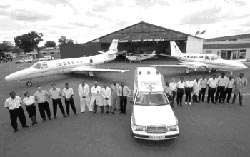
We advise you to apply for a Flying Doctors membership. The membership provides a quick and reliable air evacuation and medical care if needed.
AMREF Flying Doctors offers 2 covers (Annual and Short Term). You can choose between the Maisha Silver (Kenya, Tanzania and Zanzibar), Maisha Gold (Kenya, Tanzania, Zanzibar, Uganda, Rwanda and Burundi) or Maisha Platinum (Kenya, Tanzania, Zanzibar, Uganda, Rwanda, Burundi, South Sudan and Ethiopia).
Please check out the AMREF Flying Doctors website for more information and to become a member.
The official languages of Rwanda are French and English, the local language is Kinyarwanda.
Rwanda is a tropical country, with higher temperatures at lower altitudes (Akagera).
Areas around Nyungwe, Lake Kivu and Volcanoes National Park are generally cooler.
Rwanda can be visited at any time throughout the year. But please keep in mind that mountain hikes, gorilla tracking and other forest walks are more challenging during the rainy seasons (March - May and October - November).
For birders the rainy season is considered to be the best time to visit Rwanda.
Rainy season means it rains more often, but not every day and not the whole day.
Daytime temperatures are generally warm to hot, so bring lots of light clothing. Evenings are cooler, especially at high altitudes (areas around Volcanoes National Park and the Virungas), so carry a couple of sweaters too.
Those who intend to do mountain hiking will be exposed to alpine temperatures and should pack accordingly. Solid walking shoes and sturdy clothing are ideal for forest walks.
When you are doing gorilla tracking some gardeners gloves are handy because of the thick vegetation and thorns.
Do not forget to bring a hat, sunglasses, sunscreen and a waterproof jacket. During safaris we advise to avoid black and dark blue clothes (because they can attract tsetse flies).
If you are planning on doing a community walk or visit the local people, we advise you to wear appropriate clothing. For example women putting on long skirts and a top that covers the shoulders. We also advise you not to wear purple clothes. Rwanda has “adopted” purple as the official color of mourning after the Genocide of 1994.
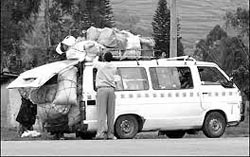 A valid passport is mandatory (passport must be valid for at least 3 months after re-entry) and visa requirements for all countries you are planning to visit should be checked before you travel.
A valid passport is mandatory (passport must be valid for at least 3 months after re-entry) and visa requirements for all countries you are planning to visit should be checked before you travel.
To make the most of your visit to the game reserves and national parks, we advise you to carry binoculars and field guides.
Photographers will need a zoom lens for wildlife (70-300 or more). Please make sure to carry enough memory cards with you. Toiletries and other essentials can be bought in the cities.
A torch (flashlight) can proof to be very useful
We advise you to take an international adapter with you for your electric equipment. The system used in Rwanda is the Western European system. In most lodges it is possible to charge your batteries.
Driving in Rwanda is on the right-hand side.
Visitors without experience of African roads are advised to travel with a 4x4 vehicle driven by a knowledgeable driver/guide, rather than self-drive.
All our guides are well trained in "Defensive Driving".
Please mind that washrooms along the road are sometimes not to European standards, for example squatting toilets, no flushing toilets or no toilet paper available. Like the locals say: T.I.A. This Is Africa.
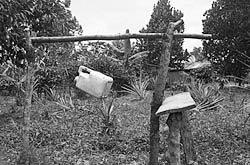 Bathroom facilities and accommodations can be more basic when traveling on a medium to low budget. In the eco lodges mind that the water reserves are limited and in most cases there are no sockets in the room, but you can always charge your devices at the reception.
Bathroom facilities and accommodations can be more basic when traveling on a medium to low budget. In the eco lodges mind that the water reserves are limited and in most cases there are no sockets in the room, but you can always charge your devices at the reception.
 Tipping will always be appreciated. It is normal to tip 5-10% in hotels and restaurants. Guides, drivers and carriers should always be tipped. Indication: for carriers USD 1-3 and for your driver/guide USD 5-15 per day, depending on the group size, number of days and your satisfaction.
Tipping will always be appreciated. It is normal to tip 5-10% in hotels and restaurants. Guides, drivers and carriers should always be tipped. Indication: for carriers USD 1-3 and for your driver/guide USD 5-15 per day, depending on the group size, number of days and your satisfaction.
The Bradt Travel Guide is the most detailed guidebook for Rwanda. The Lonely Planet produces another guidebook (Lonely Planet East Africa). For wildlife, the best guidebook is ‘Watching Wildlife East Africa’ from the Lonely Planet. For birding, the best guidebook is ‘birds of East Africa’. It is advisable to get the most updated copy.

